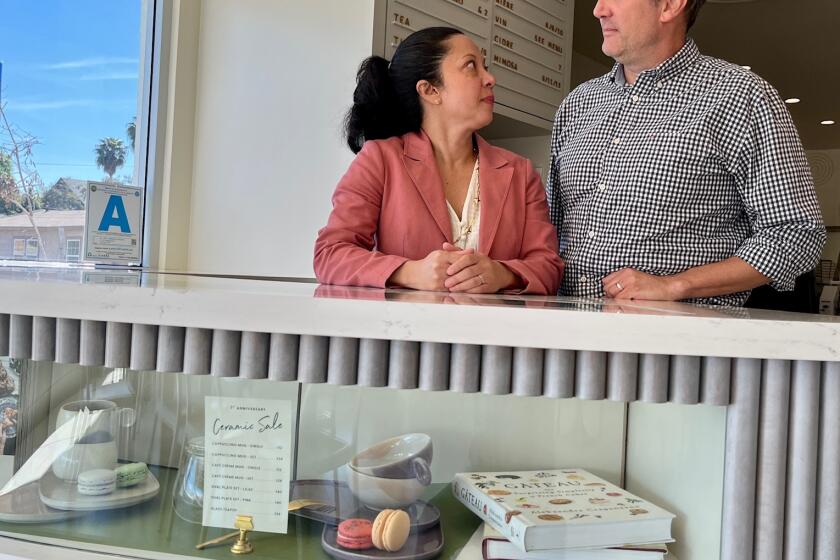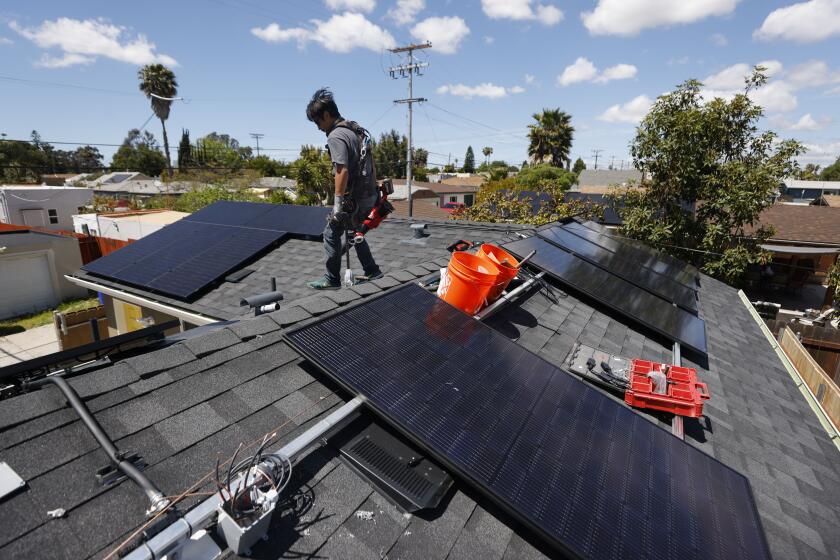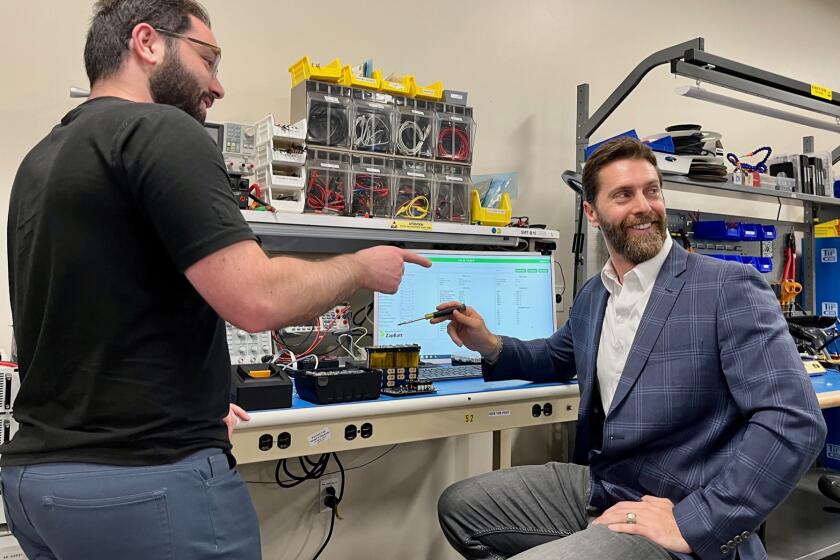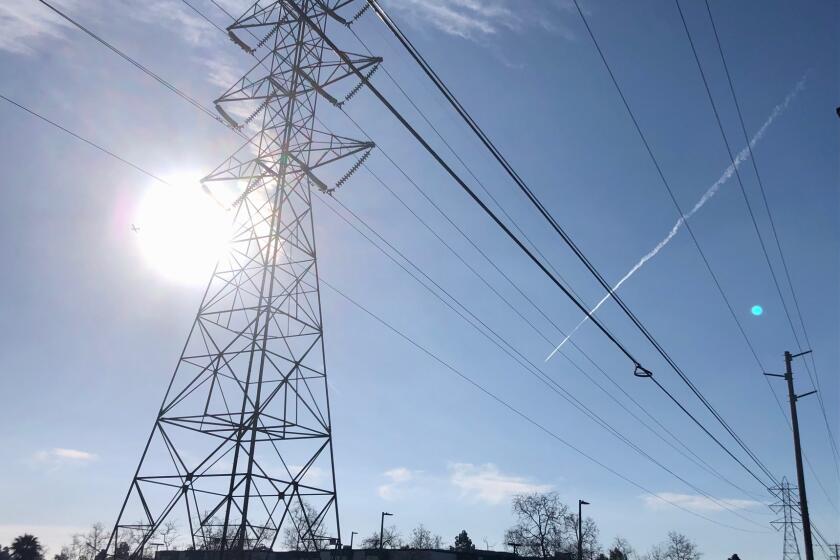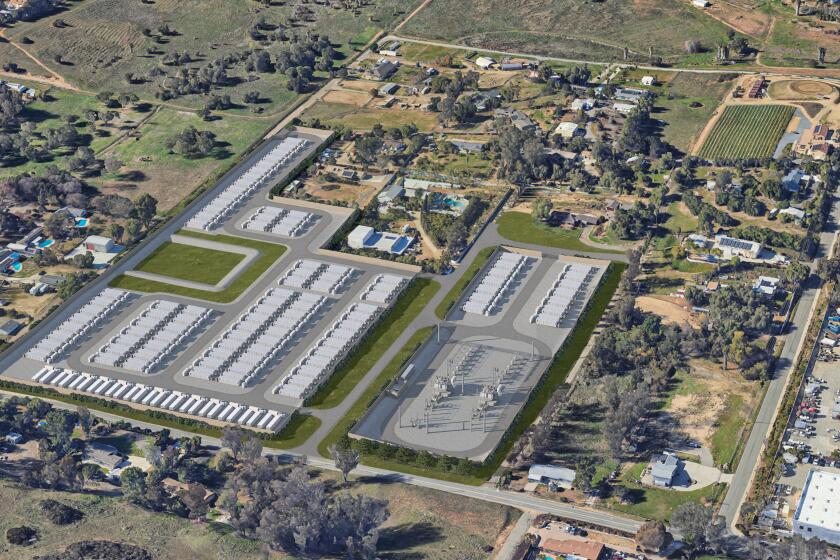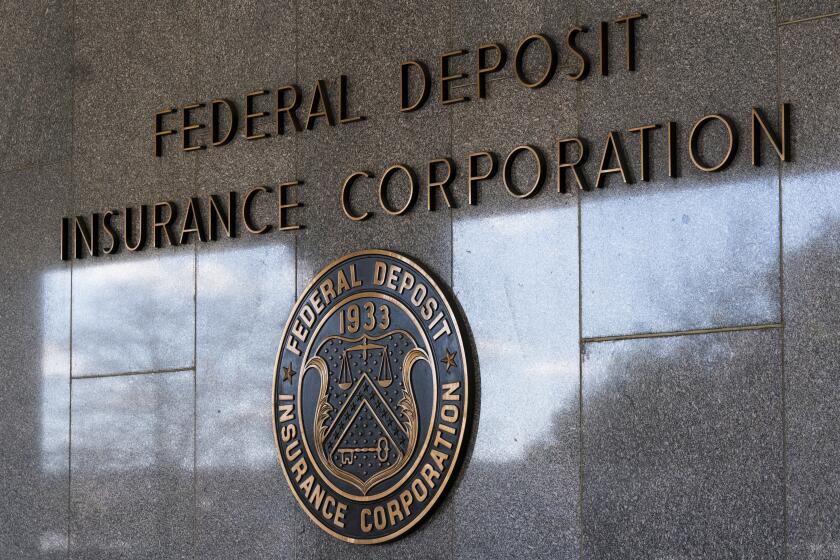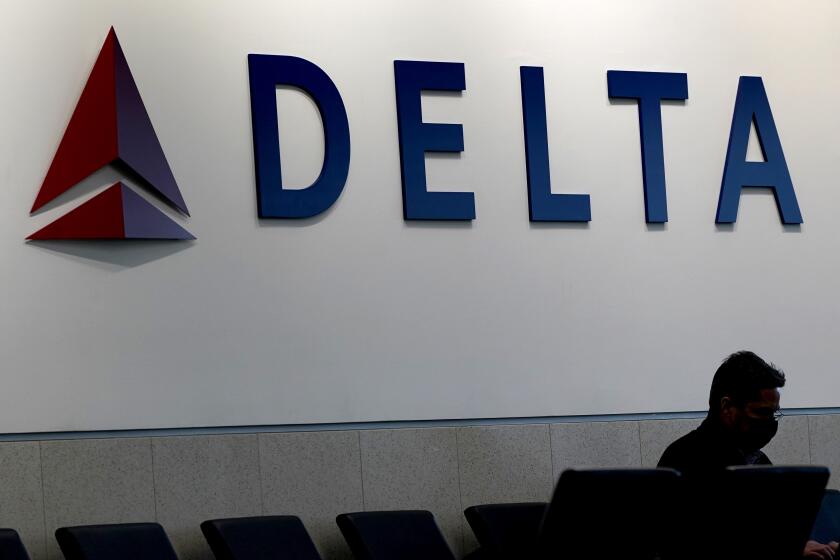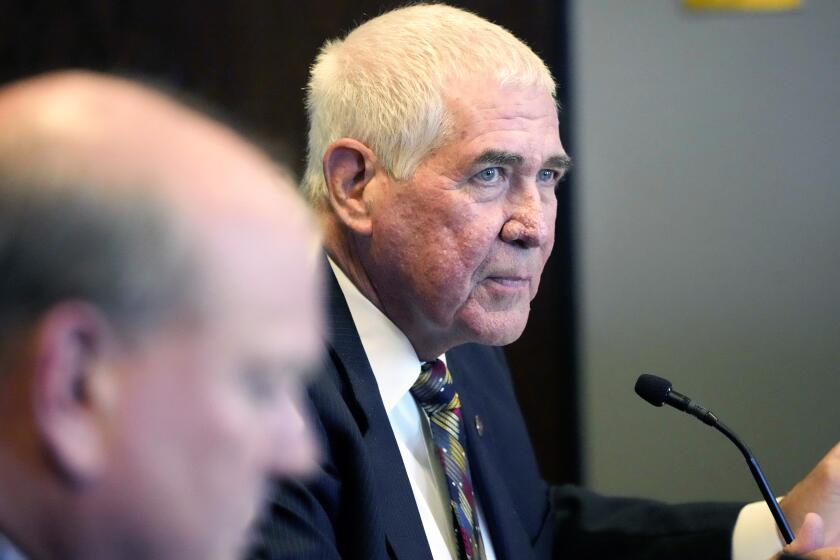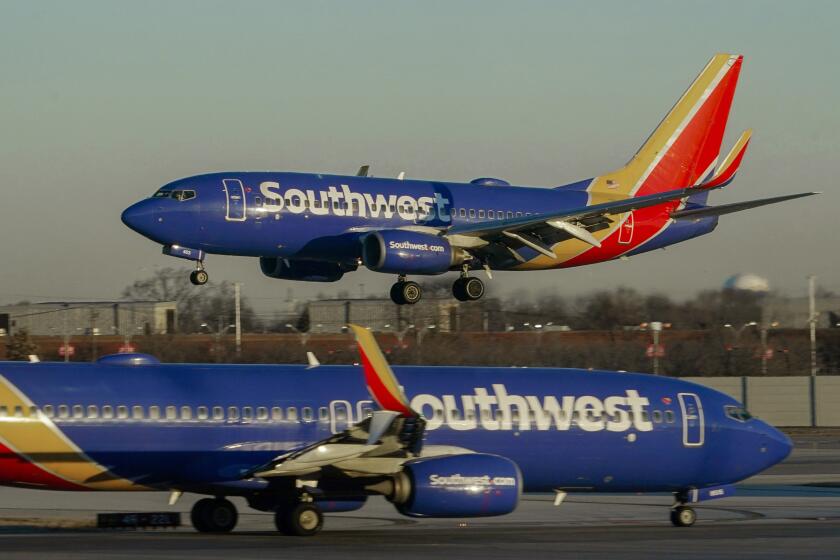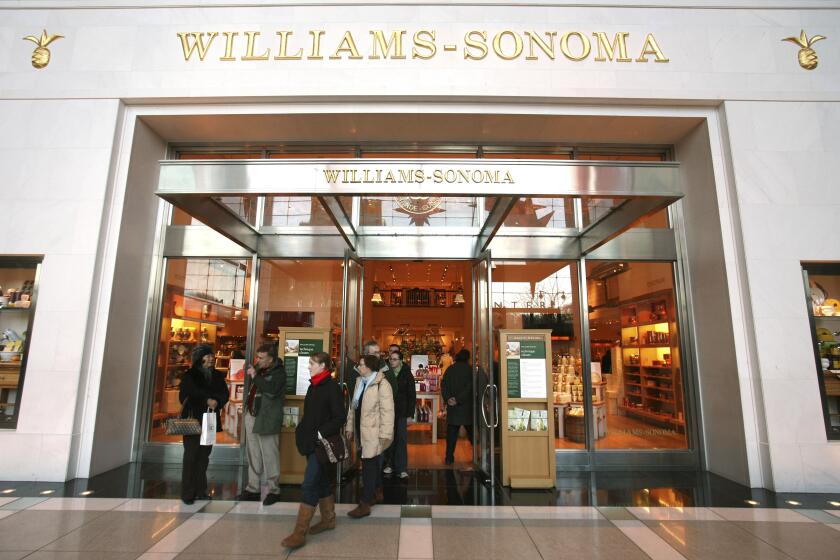San Diego City Council approves 5-month extension to SDG&E franchise agreement
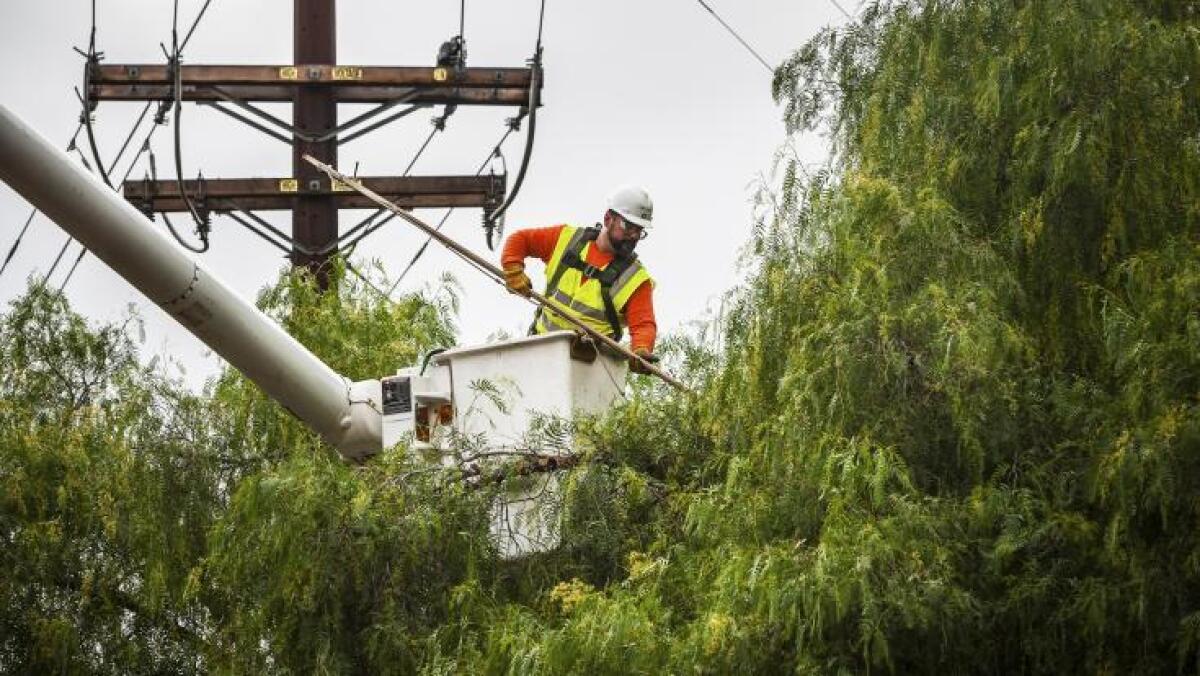
The San Diego City Council on Wednesday unanimously approved a proposal brought forth by Mayor Todd Gloria to extend the city’s existing franchise electric and gas agreement with San Diego Gas & Electric by an additional five months.
The extension, which runs through June 1, continues the terms of the current agreement that was set to expire Jan. 17 and is designed to give city officials more time to negotiate a new deal while clearing up uncertainty regarding the millions of dollars SDG&E pays to the city in franchise fees.
Gloria’s proposal to the council comes after the newly elected mayor and his staff negotiated with the utility over the Christmas holidays. On Tuesday, SDG&E’s board of directors agreed to add five months to the existing contract.
“This is an important step that will allow us to create a better energy future for all San Diegans,” Gloria said in a statement. “The extension gives us enough time to work together — with robust public participation — to craft the best possible set of terms that bidders for the new franchises must meet.”
SDG&E spokeswoman Helen Gao said the utility is “ready to work within the city process to compete openly and fairly for the new franchise agreements. Our 4,400 employees remain deeply committed to serving San Diego residents and businesses.”
Despite the 9-0 vote, a number of council members who preferred a one-year extension criticized SDG&E for wanting a shorter term. According to the San Diego City Attorney’s Office, any extension had to be agreed upon by both parties — the city and the utility.
“SDG&E has boxed us in,” said Councilman Joe LaCava, adding, “We have to wonder whether SDG&E is a partner or an adversary.”
Councilman Sean Elo-Rivera was more blunt, saying the utility declining a one-year extension demonstrates SDG&E is “using the budget deficit, the ongoing global health crisis and the transition of new city leadership to their advantage.”
Jessica Lawrence, policy director for Gloria, said the mayor’s office will use the five months to receive more input from the public about which direction the city should pursue, create a Climate Equity Fund to benefit neighborhoods impacted by greenhouse gas emissions and reopen the “invitation to bid process,” aimed at enticing multiple energy companies to compete with each other to sign a new agreement with the the city.
“The mayor’s goal remains the same — to secure franchises that meet the needs of residents, make financial sense for the city and are fair to ratepayers,” Lawrence said.
In a franchise agreement, a municipality grants a utility the exclusive use of public rights of way for transmission and distribution, as well as the right to install and maintain wires, poles, power lines, and underground gas and electric lines.
SDG&E’s current deal with the city has been in place since 1970.
Councilwoman Marni von Wilpert asked how much money the city stood to lose if the franchise agreement with SDG&E were to lapse next month.
“It’s hard to say,” Lawrence said. “On a monthly basis, it could be millions, but it would really depend on how long we would be in this situation. Again, it’s really unclear what the impacts would be.”
Under the current franchise agreement, the fees paid by SDG&E generated $47.8 million to San Diego’s general fund and $15.9 million to the city’s Environmental Growth Fund in fiscal year 2020. In addition, a surcharge in SDG&E’s electric franchise accounted for $63.6 million to the city’s Utility Undergrounding Program.
SDG&E has said without an extension in place, it could not collect the surcharges for the city due to the language written into the agreement, which requires review and approval by the California Public Utilities Commission.
The mayor’s office believes five months is enough time to get a new agreement wrapped up, Lawrence said, but “if we do need additional time, come May we will certainly go back to the negotiating table and see if we can bring forward additional time to council.”
Lawrence outlined a timeframe that would see multiple public hearings in January and February. That would be followed in March, April and May with the drafting of a new invitation to bid — based on feedback from the council and the public — and a review of those bids.
Councilwoman Jennifer Campbell, in her new role as council president, placed Wednesday’s session on the docket as a “special meeting” at the behest of Gloria.
The newly constituted council, sworn in on Dec. 10, consists of five freshmen members.
“I want to point out to you, SDG&E, you have a new mayor who operates in a very different manner than the previous one,” Campbell said. “You also have a very united City Council and you also have citizens that are united in their demands for excellent service and good relations between us or they have shown you the option they would prefer otherwise.”
That option would have the city consider forming its own municipal utility, which could replace SDG&E. Such a move would be complicated and cost billions but supporters say it would save the city and ratepayers money in the long run.
The Sacramento Municipal Utility District and the Los Angeles Department of Water and Power, for example, deliver electric services to customers in their respective cities.
“I believe one way to present some type of leverage is to further analyze the option of public power,” said Councilwoman Monica Montgomery Steppe.
The meeting opened with 54 callers taking part in the public comment period, with many urging a one-year extension and the creation of a municipal utility.
“A public power option would provide the best rates for ratepayers and provide for a just and democratic transition to clean energy,” said Connor Franklin Rey, a member of Sunrise Movement San Diego, a group fighting climate change.
Former Mayor Kevin Faulconer established a competitive bidding process but when the City Clerk’s Office opened the proposals on Dec. 17, SDG&E was the only energy company that made an offer.
SDG&E agreed to the city’s terms for a new franchise agreement lasting 20 years and paying $80 million upfront from shareholder funds ($70 million for the electric franchise and $10 million for the gas franchise).
However, the proposal included notations in which SDG&E called for various changes “so that any ultimate agreements would comply with federal, state and local law and best utility practices.”
After consulting with staff and the City Attorney’s Office, Gloria one day later rejected SDG&E’s bid, deeming it “unresponsive” because of “the extensive exceptions” the utility made in its offer.
Get U-T Business in your inbox on Mondays
Get ready for your week with the week’s top business stories from San Diego and California, in your inbox Monday mornings.
You may occasionally receive promotional content from the San Diego Union-Tribune.

